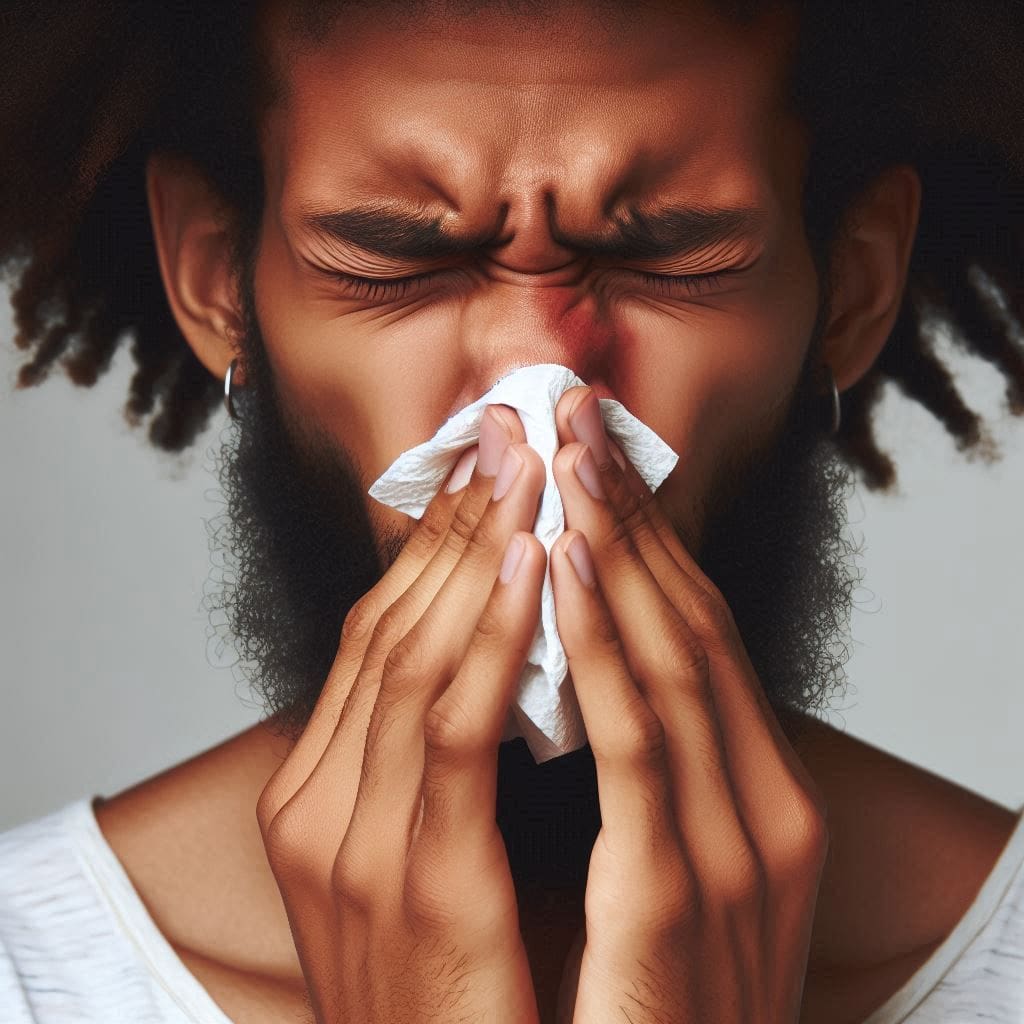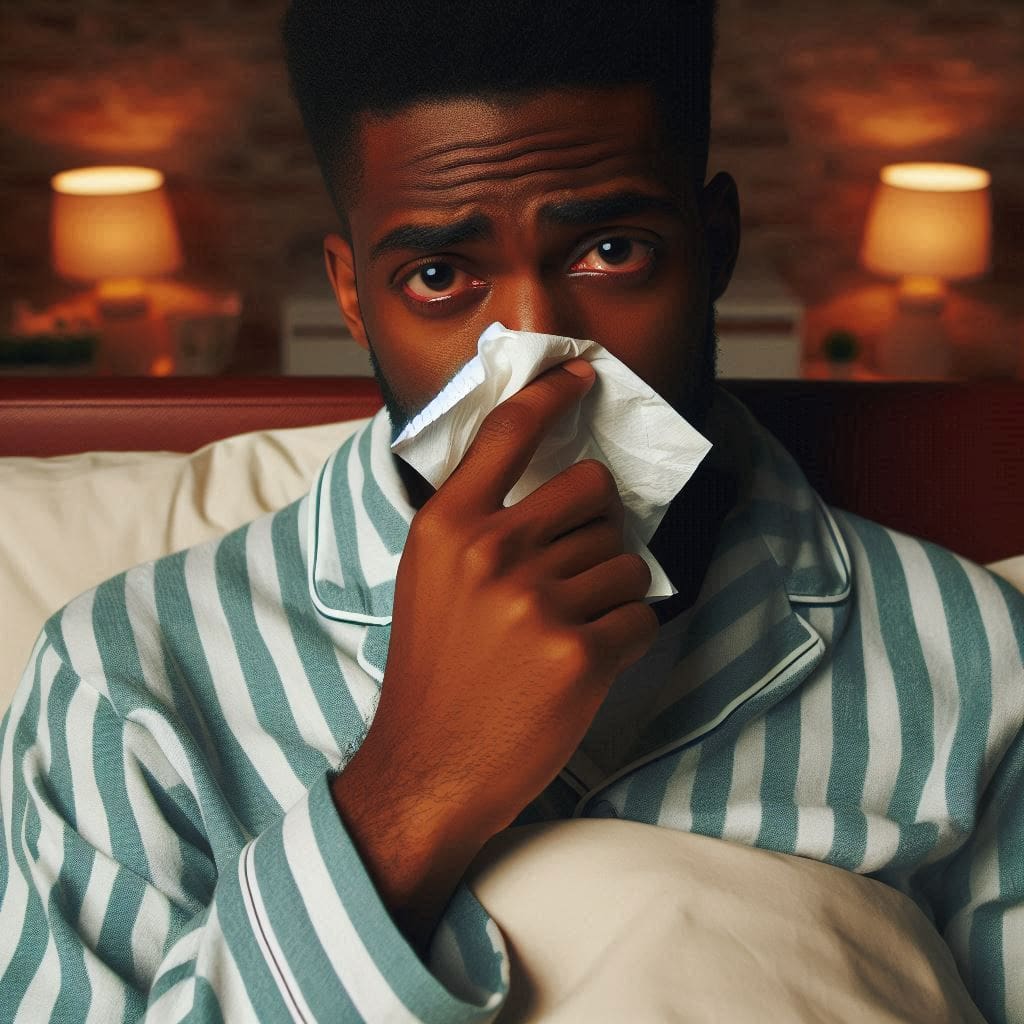
Did you know your nose does more than just hold up your glasses? It plays a huge role in how you breathe, smell, and even taste your food! But like any part of our body, our noses can have problems. Nose disorders can affect our health and daily life, making it hard to enjoy simple things like a delicious meal or a breath of fresh air.
From allergies to sinus infections, nose issues can be a real pain. They can cause stuffiness, sneezing, and even headaches. Understanding the importance of your nose and recognizing common disorders is key to taking better care of yourself.
The nose is an essential part of the body. It helps us breathe, smell, and protect our lungs. The air we breathe passes through the nose, where it gets filtered, warmed, and moistened before entering the lungs.
Our sense of smell also comes from the nose, which is important for enjoying food and detecting dangers like smoke or spoiled food.
In this guide, we’ll explore why your nose is so important, the different types of nose disorders, and tips on how to keep your nose healthy. Let’s take a closer look at this often-overlooked part of our body and learn how to keep it in top shape!
Why is your nose so important?
Your nose is more than just a facial feature. It’s a vital part of your respiratory system, responsible for breathing, smelling, and filtering air.
- Breathing: Your nose helps you inhale and exhale air.
- Smelling: It contains nerve endings that detect odours.
- Filtering: It traps dust, germs, and other particles that could harm your lungs.
What is a Nose Disorder?
4 Common Nose Disorders
1. Allergic Rhinitis
This is inflammation of the lining of the nose.
- Symptoms: Sneezing, runny nose, itchy eyes, and congestion.
- Causes: Allergic rhinitis occurs when the immune system reacts to allergens like pollen, dust, or pet dander.
- Diagnosis: Doctors diagnose it by reviewing symptoms, conducting allergy tests, and sometimes doing a nasal examination.
- Treatment: It is treated with antihistamines, decongestants, or nasal sprays.
- Prevention: Avoid allergens, clean your living space regularly, and use air purifiers.
2. Sinusitis (Sinus Infection)
This is inflammation of the sinuses, which are air-filled cavities in the bones around the nose.
- Symptoms: Facial pain, nasal congestion, headache, thick mucus, and reduced sense of smell.
- Causes: Sinusitis is caused by infections (bacterial or viral), allergies, or structural issues like a deviated septum.
- Diagnosis: Doctors may use nasal endoscopy or imaging tests like X-rays or CT scans to confirm sinusitis.
- Treatment: It includes nasal decongestants, antibiotics for bacterial infections, and saline nasal washes.
- Prevention: Keep your nasal passages moist, avoid smoking, and manage allergies to prevent sinus infections.
3. Nasal Polyps
These are small, soft growths inside the nose.
- Symptoms: Stuffy nose, loss of smell, and frequent infections.
- Causes: These are soft, painless growths in the nasal passages caused by long-term inflammation due to asthma, allergies, or chronic sinus infections.
- Diagnosis: A nasal endoscopy or imaging tests can help detect polyps.
- Treatment: Corticosteroids and nasal sprays help shrink polyps. In some cases, surgery is needed.
- Prevention: Manage chronic allergies or asthma and treat sinus infections early.
4. Deviated Septum
This is when the wall between the nostrils is crooked.
- Symptoms: Difficulty breathing through one side of the nose, frequent nosebleeds, and nasal congestion.
- Causes: A deviated septum happens when the wall between the two nostrils is off-center, which can be caused by injury or be present at birth.
- Diagnosis: Doctors perform a physical examination to check for a deviated septum.
- Treatment: Medications like decongestants can help manage symptoms, but surgery (septoplasty) is needed to correct the septum.
- Prevention: Avoiding nose injuries, like wearing protective gear during contact sports, can prevent some cases.
How Smoking Can Affect Your Nose
Smoking can significantly harm your nose and contribute to various nose disorders.
Here’s how smoking can cause nose disorder:
- Irritation of Nasal Passages: The chemicals in cigarettes irritate the lining of your nose. This can cause swelling and block airflow, leading to congestion and stuffiness.
- Increased Risk of Infections: Smoking weakens your immune system and damages the tiny hairs (cilia) inside the nose that help filter out dust and germs. This makes you more likely to get sinus infections and other respiratory issues.
- Worsening of Allergies and Rhinitis: Smoking can trigger or make allergic reactions worse, leading to conditions like allergic rhinitis, where your nose is constantly runny, itchy, and congested.
- Development of Chronic Sinusitis: Long-term smoking can lead to chronic sinusitis, a condition where the sinuses stay inflamed and blocked for a long time. This can cause facial pain, headaches, and a reduced sense of smell.
- Increased Risk of Nasal Polyps: Smoking can cause inflammation that leads to the growth of nasal polyps, which are soft, painless lumps that block the nasal passages.
To avoid these nose disorders, quitting smoking is a crucial step. It can help protect your nasal health and improve your overall well-being.
Secondhand Smoke and Nose Disorders
Here are some ways secondhand smoke can contribute to nose disorder:
- Irritation and Inflammation: The chemicals in secondhand smoke can irritate the lining of your nose, causing inflammation and swelling. This can lead to congestion, difficulty breathing, and increased risk of infections.
- Chronic Sinusitis: Secondhand smoke can contribute to chronic sinusitis, a condition where the sinuses become inflamed and infected. This can cause facial pain, pressure, and a stuffy nose.
- Increased Risk of Infections: Secondhand smoke weakens your immune system, making you more susceptible to respiratory infections like colds and flu. These infections can worsen existing nose problems or lead to new ones.
- Damage to Blood Vessels: Secondhand smoke can damage the blood vessels in your nose, leading to nosebleeds and increased risk of infection.
Avoiding secondhand smoke is essential for protecting your nasal health and overall well-being. If you’re exposed to secondhand smoke, try to avoid it or limit your exposure.
How Nose Disorders Can Negatively Affect Health and Overall Well-being

Nose disorders can have a serious impact on your health and overall well-being.
- Breathing Problems: When your nose is blocked or swollen, it can be hard to breathe properly, which may reduce oxygen flow to your body and make you feel tired or short of breath.
- Loss of Smell: Many nose disorders, like sinusitis or nasal polyps, can affect your sense of smell. This can make it difficult to enjoy food or detect dangers like smoke or gas leaks.
- Chronic Discomfort: Conditions like sinusitis or allergic rhinitis can cause ongoing discomfort, such as facial pain, headaches, and constant congestion.
- Poor Sleep: Blocked nasal passages can lead to poor sleep quality, making you feel tired, irritable, and less focused during the day.
- Infections: Some nose disorders increase your risk of infections, which can make you feel sick and lead to more serious health problems if left untreated.
- Impact on Mental Health: Long-term nose problems can cause stress, anxiety, and frustration, especially when they affect your daily life or sleep.
Taking care of your nose health can help you avoid these issues and improve your overall well-being.
Diagnosis and Treatment of Nose Disorders
Diagnosis of Nose Disorders
Doctors use several methods to find out what is causing a nose disorder.
Here’s how they usually do it:
- Physical Exam: The doctor checks the inside of your nose by looking for signs of swelling, redness, or blockages.
- Nasal Endoscopy: This involves using a thin, flexible tube with a light and camera (endoscope) to see inside your nose and sinuses more clearly. It helps the doctor find problems like infections, polyps, or a deviated septum.
- Imaging Tests: Sometimes, doctors use X-rays, CT scans, or MRIs to get detailed pictures of your nose and sinuses. These images help detect issues like sinus infections, growths, or structural problems.
- Allergy Tests: If allergies are suspected, doctors may do skin or blood tests to find out what substances you’re allergic to, like pollen or dust.
Treatment of Nose Disorders
The treatment for nose disorders depends on what is causing the problem.
Here are some common treatments for treating nose disorders:
- Medications:
- Antihistamines: These help reduce allergy symptoms like sneezing, runny nose, and itching by blocking the body’s allergic response.
- Decongestants: These are used to relieve stuffiness and congestion by shrinking swollen blood vessels in the nose.
- Nasal Sprays: Some sprays contain corticosteroids that reduce inflammation in the nose, while others help clear mucus or open up the nasal passages.
- Antibiotics: If a bacterial infection is causing the problem, doctors may prescribe antibiotics to treat the infection.
- Saline Nasal Rinses: Using a saltwater solution to rinse out the nasal passages can help clear mucus and ease congestion. This can be done with a spray or a neti pot.
- Surgery: For more serious problems like nasal polyps, a deviated septum, or chronic sinus infections, surgery may be necessary. Surgical procedures, such as septoplasty or polypectomy, can help correct these issues and improve breathing.
Treatment plans vary from person to person, depending on how severe the disorder is and what caused it. Always follow your doctor’s advice for the best results.
How to Prevent Nose Disorders
- Maintain good hygiene: Wash your hands regularly to prevent infections.
- Avoid allergens: Keep your environment clean to reduce exposure to dust, pollen, and other irritants.
- Stay hydrated: Drinking plenty of water helps keep your nasal passages moist.
- Avoid smoking: Smoking irritates the nose and can lead to chronic problems.
- Protect your nose: Wear protective gear during activities that may cause injury.
Conclusion
By understanding the importance of your nose and the common disorders that can affect it, you can take steps to protect your respiratory health and improve your quality of life.



